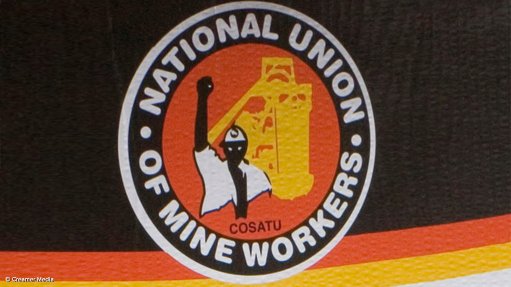Sector recovery lies in collaboration – says cement maker

AfriSam readymix GM Amit Dawneerangen shares his insight on the state of the construction industry
The construction sector remains under pressure, despite the easing of the national lockdown to Level 1, and contractors need to work with materials suppliers to remain cost competitive, says construction materials company AfriSam.
There is also a need for contractors to continue using quality construction materials and not “cut corners”, affirms AfriSam readymix GM Amit Dawneerangen.
He tells Engineering News that using quality materials has always been a selling point for AfriSam with customers, who are typically contractors for property developers.
“People often believe that concrete is just concrete and that a certain grade can be specified, ordered and supplied. However, we like to collaborate to come up with specific concrete solutions. A project may well have different concrete requirements for different applications.
“We have done a lot of work in providing customised mixes and products, which help customers to reduce costs and remain competitive. If a company does not ask for specifics, it will not get the most cost-effective solution.”
Dawneerangen says AfriSam was collaborating with contractors on customised concrete solutions long before Covid-19; however, the pandemic has exacerbated the need for companies to contain costs – and AfriSam is ready to cater for this.
Projects can also require specialised concrete, such as AfriSam’s readymix durability-class concrete, which involves testing to ensure that the supplied concrete will meet the specifications of the project.
Dawneerangen says the company has started planning and testwork on a durability- class concrete in preparation for contractors being awarded contracts for the South African National Roads Agency N2/N3 upgrade projects, in KwaZulu-Natal.
He stresses the importance of having good relationships with contractors in the construction industry. Tender award preferences should go beyond pricing considerations and consider the overall value and quality that a supplier can bring to the table, Dawneerangen adds.
This has become a particular issue in the construction industry, owing to fierce competition among contractors to secure the few infrastructure contracts that are available.
“Some contractors tender at very low rates, and, when awarded the contracts, are forced to procure materials to meet those pricing obligations. This often results in contractors choosing a construction materials supplier that offers the lowest price, but often with an inability to deliver on quality and quantity,” Dawneerangen explains.
He adds that failure by suppliers to meet contract specifications forces the contractors to eventually opt for a superior materials supplier.
Pouring Success
Meanwhile, AfriSam stands ready to offer its continuous pouring of concrete, which is useful in projects that require large volumes of concrete to be placed, and preferably without “joints” forming in the concrete.
This does not come easy, Dawneerangen asserts, elaborating that a continuous pour requires extensive planning.
“When supplying between 400 m3 and up to 2 000 m3 of concrete in a continuous pour, one has to consider the availability of trucks for transport to meet the cubic-meter-per-hour requirements, as well as ensuring the availability of raw materials.”
One such truck can carry only between 6 m3 and 8 m3 of concrete; therefore, the scheduling of multiple trucks and trips, as well as the trucks’ arriving on time and with the correct material, is crucial, Dawneerangen illustrates.
“At AfriSam’s plants, cementitious materials are stored in silos, while aggregate materials are stored in bins. During a large pour, we need to ensure that the materials arrive at the right time, owing to limited storage capacity at the plant.”
Dawneerangen notes that traffic is also a major consideration, since the mixed product needs to get to site within a certain timeframe and vehicles need to arrive shortly after one another to ensure uninterrupted supply.
AfriSam has been involved in multiple reservoir construction projects in Gauteng, which require continuously poured bases, walls and roof slabs, with invitations to tender for more such projects due to be released by the Department of Water and Sanitation.
“The private sector has been providing the majority of infrastructure development in the country in the past few years, which is not sustainable for an industry that needs to recover jobs,” Dawneerangen laments, adding that more government contracts ought to go out on tender.
State of Industry
The South African construction industry remains labour intensive, compared with many other construction industries globally; however, owing to a lack of projects, the country’s skilled labour has been emigrating to Australia and New Zealand, which have been experiencing construction booms, Dawneerangen remarks.
As a result of this skills migration, South Africa is leaving a huge gap in the market for international companies to take over large construction projects, since they have the civil engineering and other relevant skills that the industry requires.
This will increase the costs of construction projects and result in more job losses, whereas local firms could have employed local people.
Dawneerangen believes that the industry is in dire need of government spending on infrastructure, as well as training more young people for the industry, which will materialise only when all stakeholders are open for collaboration.
Article Enquiry
Email Article
Save Article
Feedback
To advertise email advertising@creamermedia.co.za or click here
Press Office
Announcements
What's On
Subscribe to improve your user experience...
Option 1 (equivalent of R125 a month):
Receive a weekly copy of Creamer Media's Engineering News & Mining Weekly magazine
(print copy for those in South Africa and e-magazine for those outside of South Africa)
Receive daily email newsletters
Access to full search results
Access archive of magazine back copies
Access to Projects in Progress
Access to ONE Research Report of your choice in PDF format
Option 2 (equivalent of R375 a month):
All benefits from Option 1
PLUS
Access to Creamer Media's Research Channel Africa for ALL Research Reports, in PDF format, on various industrial and mining sectors
including Electricity; Water; Energy Transition; Hydrogen; Roads, Rail and Ports; Coal; Gold; Platinum; Battery Metals; etc.
Already a subscriber?
Forgotten your password?
Receive weekly copy of Creamer Media's Engineering News & Mining Weekly magazine (print copy for those in South Africa and e-magazine for those outside of South Africa)
➕
Recieve daily email newsletters
➕
Access to full search results
➕
Access archive of magazine back copies
➕
Access to Projects in Progress
➕
Access to ONE Research Report of your choice in PDF format
RESEARCH CHANNEL AFRICA
R4500 (equivalent of R375 a month)
SUBSCRIBEAll benefits from Option 1
➕
Access to Creamer Media's Research Channel Africa for ALL Research Reports on various industrial and mining sectors, in PDF format, including on:
Electricity
➕
Water
➕
Energy Transition
➕
Hydrogen
➕
Roads, Rail and Ports
➕
Coal
➕
Gold
➕
Platinum
➕
Battery Metals
➕
etc.
Receive all benefits from Option 1 or Option 2 delivered to numerous people at your company
➕
Multiple User names and Passwords for simultaneous log-ins
➕
Intranet integration access to all in your organisation



















